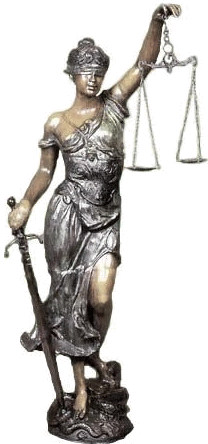
In another of the many meetings of recent days, the XI International Criminal Sciences Meeting 2012, the General Controller of the Republic, Gladys Bejarano Portela, urged, from ethics and professionalism, the confrontation of economic crimes and illegalities. Again the obligatory topic of corruption, focuses the interest of the participants on a legal event.
The fact is that, during so many years the sweeping of these systemic phenomena of Cuban socialism were swept under the rug, that now its effusion covers all spheres of society. Now the General-President had called attention again, during the last extended Cabinet meeting, ending September, to work with rigor and discipline in order to eliminate the disorganization that drives the waste, theft and negligence.
He referred to delinquency in the collections and payments between enterprises and agencies and the increase in the string of defaults. The fact is that there is no custom of respecting contracts or budgets or schedules, because for many years they directed the country by command, by means of government directives. And those rains brought this mud.
The Attorney General of the Cuban Republic spoke in the Meeting about the respectful vocation of the law and the legality of the revolution during its historical evolution. This contrasts with the aphorism that the revolution is the source of law because it was the revolutionary power that upset even the country’s judicial symbols.
They appropriated from the designated buildings those which impart justice, like the building that today is occupied by the State Counsel and the Central Party Committee: the current Palace of the Revolution. This building, which they inherited from the past regime, was intended for the Palace of Justice. The headquarters of the Pines Island Tribunal in Nueva Gerona, for example, was converted to an ice cream shop in the second half of the 1960’s and so, through all the national territory, the semiotics of what is legal suffered inherently with respect to the law.
Enemies of the old law and obedient to the new, they headlined themselves the powerful debut. But they have been the first violators of their own laws. A recent example: article 57 of the Constitution of the Cuban Republic expresses that correspondence is inviolable. It can only be used, opened and examined in cases previewed by the law. Matters irrelevant to the purpose of the examination will be kept secret. The same principle will be observed with respect to cable, telegraph and telephone communications.
On a television program last month, they made public a telephone conversation of an opponent who was on hunger strike in her home in the capital. The arbitrary detention of dissidents; the deportations to their provinces of all who are where it does not suit the authorities; the known acts of repudiation against opponents and dissidents, organized by the same authorities that supposedly should prevent them, finally, the stigma that we are all guilty before the law, until we prove otherwise.
Also talked about at the event was the comprehensive analysis of the country’s Criminal Justice System that is being carried out, which will generate, according to the Attorney General, important modifications to the Penal code, the Law of Criminal Procedure and other legal norms. By now, the Lady of Justice, with eyes blindfolded and scales in hand, gives a suspicious wink to Cubans, observing everything, hiding behind the dark glasses of totalitarian power.
October 16 2012
